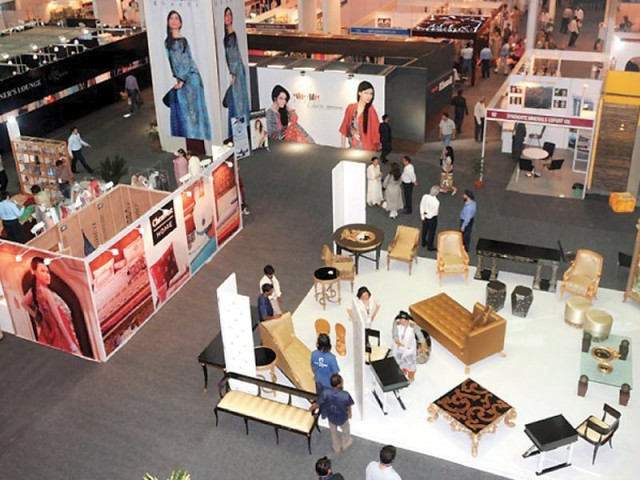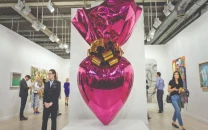Lifestyle: Will Pakistani products find space in Indian shelves?
The exhibition was a vibrant celebration of Pakistani culture and fashion.

While there is a market for their goods, Pakistani designers feel trade barriers will prevent them from being successful in India.
Lifestyle Pakistan had brought with it a promise of stronger trade relations with India. The exhibition, which was held in New Delhi from April 12 to 15 this year, saw several Pakistani manufacturers and businessmen seizing the chance to market their products in India. With the tireless work and effort of Jalal Salahuddin and Omer Satti of J&S, along with Tariq Puri of the Trade Development Authority of Pakistan (TDAP), the exhibition proved to be a roaring success, giving Pakistan designers an opportunity to impress the Indian public.
“We have a natural synthesis with India,” said Jalal Salahuddin, “Because our culture ethos is similar, it is inevitable that our products will be a success there, which they were. Lawn was the biggest sell out.”
Looking at the overwhelming response to Pakistani products, Salahuddin concluded that Lifestyle Pakistan will continue as an annual event, adding that the growing appetite for consumption between the two nations will be beneficial on both sides.
With over 650 people attending from Pakistan, the exhibition was a vibrant celebration of Pakistani culture and fashion. Manufacturing houses such as Gul Ahmed, Ahad Home Signature, Chen One, Zamana, Bareeze, Hub Leather and Engro Group were amongst the larger companies exhibiting their products. There was also a food court and an in-house gallery that showcased local Pakistani artists.
But despite the exhibition being a government to government initiative, exhibitors still feel that persisting drawbacks in trade relations will make it difficult for Pakistani designers to thrive in India.
“It was a very successful event but there are still bureaucratic issues that are holding us back,” Mr Masood of Chen One tells The Express Tribune, “the trade barriers haven’t opened up yet and it is a hindrance for us since we have been trading with India via Dubai already.”
According to Masood, the response was staggering but quantitative business was not possible. The exhibition may have been a smashing success for individual sellers, but problems within the bureaucracy along with discordant trade relations continue to stifle the ability of the Pakistani textile conglomerate to take orders or finalise specific deals.
Zain Aziz of Sefam (representing Bareeze) also blamed trade barriers for the uncertain future of his company in India. “As a rule, we only franchise and do not stock. So once the barriers open up, we will have a better view of what is going on at our end.”
Seema Iftikhar, owner of Zamana furniture, seems to be the only person who returned to Pakistan with orders; she even managed to invite potential buyers from across the border to pay her a visit. Despite the Milan Furniture Fare taking place at the same time, Pakistani interior decorators were extremely impressive, selling consignments and booking orders. But, for such companies to reach their full potential in the Indian market, it is vital for legal channels to open up and trade relations to be mended.
Published in The Express Tribune, June 23rd, 2012.



















COMMENTS
Comments are moderated and generally will be posted if they are on-topic and not abusive.
For more information, please see our Comments FAQ